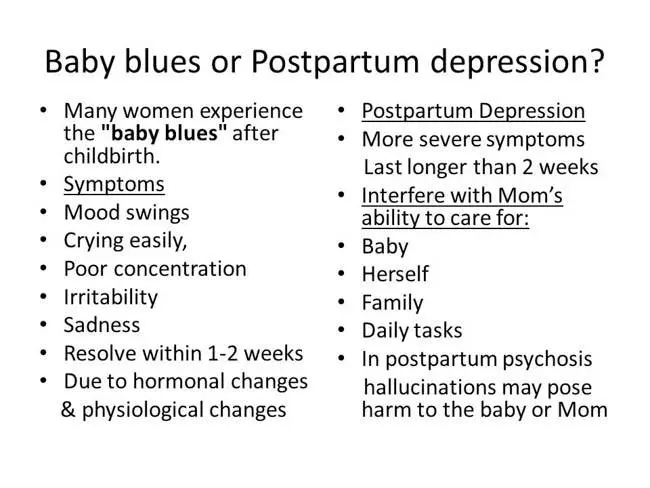Raise of hands if you’ve heard someone say, “Oh it’s just the baby blues you’re feeling” or “having the baby blues is normal and will go away after a while.” No, the person was not talking about the adorable blue shade of your child’s eyes. He or she was referring to the feelings of depression and overwhelming mood swings many new mothers feel right after giving birth.
The term “baby blues” seems to have been adopted for this definition sometime around the 1940’s and has since been overused to make new mothers everywhere doubt themselves and what they are feeling, writing off any amount of depression as a normal occurrence that will pass “soon.” As you can probably tell, I’m not a big fan of the baby blues term.
After having my first child, I was just like any other new mom: totally overwhelmed as I tried to figure out how to keep a human being alive and adjust to our new normal. Weeks later, I opened up to a few people about how I was feeling. I used words like “overwhelmed,” “emotional,” “numb,” and “anxious.” And just like too many women before me, I was told it was the baby blues and that it would pass. So I spent the next 6 months convincing myself that what I was feeling was baby blues and not postpartum depression. Everyone said it was normal and it would go away soon so I just had to hold on a little bit longer, right? No one explained to me the difference between the two so I didn’t realize that six months of pain was not just “Baby Blues.”
Luckily for me, I finally sought help. But what if I hadn’t?
That phrase, “Oh it’s just the baby blues” makes so many new mothers doubt themselves. They doubt their emotions, their problems, and their fears because we sweep it under the rug as “normal” by saying it’s the baby blues. How many women have suffered through PPD because their mothers, friends, or heaven forbid some doctors told them they would get over the blues soon? How many people don’t understand PPD and aren’t willing to accept it as a serious illness but just continue to lump everything together into postpartum baby blues? Isn’t there a better way to educate the difference between the two? No one seems to be bothering to explain what that term really means!
Baby blues makes so many women with actual PPD doubt themselves, their emotions, the importance of those emotions, and their ability to be a mother. Negating what a mother is going through as “typical baby blues” downplays the severity of her possible early PPD symptoms. That term sweeps under the rug all the mother’s concerns and fears with a promise of better days tomorrow. But for many women, better days won’t come tomorrow. At least, not without proper medical attention and advice, therapy, medication, diet change and/or increased exercise.
Please, stop overusing the term “baby blues” so loosely with new mothers. Make sure she understands that term is only talking about the mood swings and hormone adjustments she will go through the week or two following her baby’s birth; not the months of pain, anxiety, or anger she might feel afterwards. Help her understand you aren’t ignoring her concerns and that you truly believe her when she says she can’t connect to her baby.
Because until we start distinguishing better between the normal, few-day adjustment period every parent faces after they add another family member, and the serious symptoms of postpartum depression, the more mothers will remain silent. The more mothers will continue to assume there’s something wrong with them because they can’t get over the blues that should’ve passed by now. The more mothers will withhold forgiveness from themselves because they don’t understand that their brains are chemically imbalanced.
We aren’t in the 1940’s anymore, where no one talks about depression and where everyone sweeps our feelings under the rug of baby blues. It’s okay to err on the side of caution and help our loved ones seek support when the baby blues turn out to be something more.

